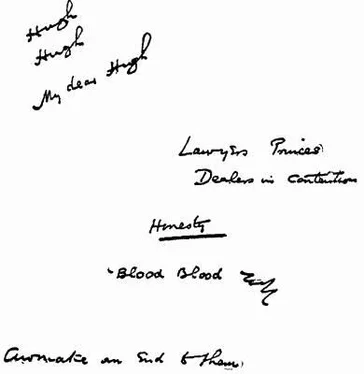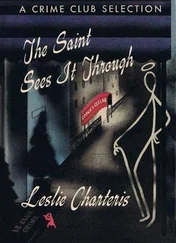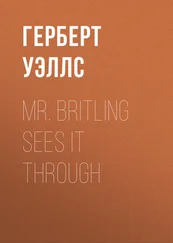Herbert Wells - Mr. Britling Sees It Through
Здесь есть возможность читать онлайн «Herbert Wells - Mr. Britling Sees It Through» весь текст электронной книги совершенно бесплатно (целиком полную версию без сокращений). В некоторых случаях можно слушать аудио, скачать через торрент в формате fb2 и присутствует краткое содержание. Жанр: Классическая проза, на английском языке. Описание произведения, (предисловие) а так же отзывы посетителей доступны на портале библиотеки ЛибКат.
- Название:Mr. Britling Sees It Through
- Автор:
- Жанр:
- Год:неизвестен
- ISBN:нет данных
- Рейтинг книги:4 / 5. Голосов: 1
-
Избранное:Добавить в избранное
- Отзывы:
-
Ваша оценка:
- 80
- 1
- 2
- 3
- 4
- 5
Mr. Britling Sees It Through: краткое содержание, описание и аннотация
Предлагаем к чтению аннотацию, описание, краткое содержание или предисловие (зависит от того, что написал сам автор книги «Mr. Britling Sees It Through»). Если вы не нашли необходимую информацию о книге — напишите в комментариях, мы постараемся отыскать её.
Mr. Britling Sees It Through — читать онлайн бесплатно полную книгу (весь текст) целиком
Ниже представлен текст книги, разбитый по страницам. Система сохранения места последней прочитанной страницы, позволяет с удобством читать онлайн бесплатно книгу «Mr. Britling Sees It Through», без необходимости каждый раз заново искать на чём Вы остановились. Поставьте закладку, и сможете в любой момент перейти на страницу, на которой закончили чтение.
Интервал:
Закладка:
Mr. Britling was in a phase of imaginative release. Such a release was one of the first effects of the war upon many educated minds. Things that had seemed solid forever were visibly in flux; things that had seemed stone were alive. Every boundary, every government, was seen for the provisional thing it was. He talked of his World Congress meeting year by year, until it ceased to be a speculation and became a mere intelligent anticipation; he talked of the "manifest necessity" of a Supreme Court for the world. He beheld that vision at the Hague, but Mr. Carmine preferred Delhi or Samarkand or Alexandria or Nankin. "Let us get away from the delusion of Europe anyhow," said Mr. Carmine....
As Mr. Britling had sat at his desk that morning and surveyed the stupendous vistas of possibility that war was opening, the catastrophe had taken on a more and more beneficial quality. "I suppose that it is only through such crises as these that the world can reconstruct itself," I said. And, on the whole that afternoon he was disposed to hope that the great military machine would not smash itself too easily. "We want the nations to feel the need of one another," he said. "Too brief a campaign might lead to a squabble for plunder. The Englishman has to learn his dependence on the Irishman, the Russian has to be taught the value of education and the friendship of the Pole.... Europe will now have to look to Asia, and recognise that Indians and Chinamem are also 'white.'... But these lessons require time and stresses if they are to be learnt properly...."
They discussed the possible duration of the war.
Mr. Carmine thought it would be a long struggle; Mr. Britling thought that the Russians would be in Berlin by the next May. He was afraid they might get there before the end of the year. He thought that the Germans would beat out their strength upon the French and Belgian lines, and never be free to turn upon the Russian at all. He was sure they had underrated the strength and energy of the French and of ourselves. "The Russians meanwhile," he said, "will come on, slowly, steadily, inevitably...."
§ 8
That day of vast anticipations drew out into the afternoon. It was a day—obsessed. It was the precursor of a relentless series of doomed and fettered days. There was a sense of enormous occurrences going on just out of sound and sight—behind the mask of Essex peacefulness. From this there was no escape. It made all other interests fitful. Games of Badminton were begun and abruptly truncated by the arrival of the evening papers; conversations started upon any topic whatever returned to the war by the third and fourth remark....
After lunch Mr. Britling and Mr. Carmine went on talking. Nothing else was possible. They repeated things they had already said. They went into things more thoroughly. They sat still for a time, and then suddenly broke out with some new consideration....
It had been their custom to play skat with Herr Heinrich, who had shown them the game very explicitly and thoroughly. But there was no longer any Herr Heinrich—and somehow German games were already out of fashion. The two philosophers admitted that they had already considered skat to be complicated without subtlety, and that its chief delight for them had been the pink earnestness of Herr Heinrich, his inability to grasp their complete but tacit comprehension of its innocent strategy, and his invariable ill-success to bring off the coups that flashed before his imagination.
He would survey the destructive counter-stroke with unconcealed surprise. He would verify his first impression by craning towards it and adjusting his glasses on his nose. He had a characteristic way of doing this with one stiff finger on either side of his sturdy nose.
"It is very fortunate for you that you have played that card," he would say, growing pinker and pinker with hasty cerebration. "Or else—yes"—a glance at his own cards—"it would have been altogether bad for you. I had taken only a very small risk.... Now I must—"
He would reconsider his hand.
" Zo! " he would say, dashing down a card....
Well, he had gone and skat had gone. A countless multitude of such links were snapping that day between hundreds of thousands of English and German homes.
§ 9
The imminence of war produced a peculiar exaltation in Aunt Wilshire. She developed a point of view that was entirely her own.
It was Mr. Britling's habit, a habit he had set himself to acquire after much irritating experience, to disregard Aunt Wilshire. She was not, strictly speaking, his aunt; she was one of those distant cousins we find already woven into our lives when we attain to years of responsibility. She had been a presence in his father's household when Mr. Britling was a boy. Then she had been called "Jane," or "Cousin Jane," or "Your cousin Wilshire." It had been a kindly freak of Mr. Britling's to promote her to Aunty rank.
She eked out a small inheritance by staying with relatives. Mr. Britling's earlier memories presented her as a slender young woman of thirty, with a nose upon which small boys were forbidden to comment. Yet she commented upon it herself, and called his attention to its marked resemblance to that of the great Duke of Wellington. "He was, I am told," said Cousin Wilshire to the attentive youth, "a great friend of your great-grandmother's. At any rate, they were contemporaries. Since then this nose has been in the family. He would have been the last to draw a veil over it, but other times, other manners. 'Publish,' he said, 'and be damned.'"
She had a knack of exasperating Mr. Britling's father, a knack which to a less marked degree she also possessed in relation to the son. But Mr. Britling senior never acquired the art of disregarding her. Her method—if one may call the natural expression of a personality a method—was an invincibly superior knowledge, a firm and ill-concealed belief that all statements made in her hearing were wrong and most of them absurd, and a manner calm, assured, restrained. She may have been born with it; it is on record that at the age of ten she was pronounced a singularly trying child. She may have been born with the air of thinking the doctor a muff and knowing how to manage all this business better. Mr. Britling had known her only in her ripeness. As a boy, he had enjoyed her confidences—about other people and the general neglect of her advice. He grew up rather to like her—most people rather liked her—and to attach a certain importance to her unattainable approval. She was sometimes kind, she was frequently absurd....
With very little children she was quite wise and Jolly....
So she circulated about a number of houses which at any rate always welcomed her coming. In the opening days of each visit she performed marvels of tact, and set a watch upon her lips. Then the demons of controversy and dignity would get the better of her. She would begin to correct, quietly but firmly, she would begin to disapprove of the tone and quality of her treatment. It was quite common for her visit to terminate in speechless rage both on the side of host and of visitor. The remarkable thing was that this speechless rage never endured. Though she could exasperate she could never offend. Always after an interval during which she was never mentioned, people began to wonder how Cousin Jane was getting on.... A tentative correspondence would begin, leading slowly up to a fresh invitation.
She spent more time in Mr. Britling's house than in any other. There was a legend that she had "drawn out" his mind, and that she had "stood up" for him against his father. She had certainly contradicted quite a number of those unfavourable comments that fathers are wont to make about their sons. Though certainly she contradicted everything. And Mr. Britling hated to think of her knocking about alone in boarding-houses and hydropathic establishments with only the most casual chances for contradiction.
Читать дальшеИнтервал:
Закладка:
Похожие книги на «Mr. Britling Sees It Through»
Представляем Вашему вниманию похожие книги на «Mr. Britling Sees It Through» списком для выбора. Мы отобрали схожую по названию и смыслу литературу в надежде предоставить читателям больше вариантов отыскать новые, интересные, ещё непрочитанные произведения.
Обсуждение, отзывы о книге «Mr. Britling Sees It Through» и просто собственные мнения читателей. Оставьте ваши комментарии, напишите, что Вы думаете о произведении, его смысле или главных героях. Укажите что конкретно понравилось, а что нет, и почему Вы так считаете.






